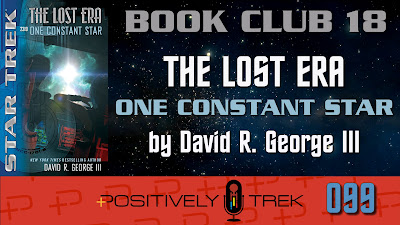Which is why I'm skeptical of those human beings who insist that their particular narrow definition of God is the only correct and allowable one
I guess you can say I'm a bit of a paradox. I do believe in Christ as Savior of the world, yet I don't preclude the possibility of others getting into Heaven. In a way, when it comes to that I take the easy way out. It's not up to me to decide who gets in or not, that's up to God. I actually take comfort in that, as opposed to some I suppose. I'm glad I don't have to make that call. Way too much responsibility.
For me, I've always believed God guided me to Catholicism. Perhaps it's because I like structure and order (which perhaps is why I can be a stickler about Star Trek continuity including with set design, it's kind of who I am I suppose). And one thing about the Catholic Church is it is very structured. I can go to any English speaking Church and participate at Mass as I would at home. And I suppose it sounds a bit superstitious I suppose, but I felt God's presence in the Catholic Church. I believe it's where He feels I belong. So I try my best to do what the Church teaches, and try to be a good Christian--though it's a struggle. It's another paradox I suppose...it's easy to do 'bad' things, be cruel, or just plain uncaring, yet it's more fulfilling to do 'good'. We feel good when we help someone else, even if it's something as simple as reaching for something on the top shelf when the other person is shorter. Or to give someone a helping hand. It's easier to walk away, but we feel more fulfilled when we don't.
There's an old saying that says "the Christian must remember that they are likely the only copy of the Gospels the non-Christian has ever seen." How we live our life and treat others is the best way to promote the Gospels, or if we are bad, to turn people away from them.
If something in cosmology "makes sense," that makes me instantly skeptical of it. Our perception of "sense" is based on our lived experience, but when we get into realms far beyond our experience, like relativity and quantum mechanics and cosmology, the correct answers are usually the ones that completely defy our expectations of sense.
Well, in a way God would not make sense. I tried to reduce my belief in God to the simplest answer, that I believe some higher power had to 'start' the universe. However, that's a very imperfect explanation. As I said, to me God is omnipresent and omniscient. He was always there and will always be there. And since the universe is infinite, it too was always there and always will be in some form or another. The human mind can't really grasp infinity, and neither could we God. Not really. There's really no words I could use to adequately explain it.
However imperfectly it sounds, to me it makes logical sense for God to exist. Or the reverse, it seems completely illogical that there would be no God to me. I have an easier time explaining why God exists than how he couldn't. In some ways I don't understand atheism. If there is no higher being, no God, then how does the universe exist? To me it's almost like trying to wrap my mind around infinity. To me, the very existence of the universe proves there must be a God.
Now...when we start getting into individual faiths like Christianity, Judaism, Islam, etc., that's a different story. I can understand agnostics and deists more--it's not that they don't believe in God, they just don't believe in a particular faith tradition.
Now, to be clear, I'm not making a value or moral judgment about atheists. Some probably live the teachings of Christ better than actual Christians, even if they don't believe in Christ. It's simply that I don't understand the concept of atheism.
In a way what Major Kira said to Odo is true to some extent for any believer. If you have faith, no explanation is necessary, if you don't no explanation is possible. That doesn't mean I don't have doubts or questions. In fact Catholocism teaches us that can be a good thing. It has for me, when I've found some of the answers I am looking for it strengthens my faith. But at the end of the day I do believe, and no amount of explanation on my part can make someone else a believer. Ultimately that's a personal decision and that individual has to cross that bridge to faith on their own. That's the gift...and the cost of free will.



